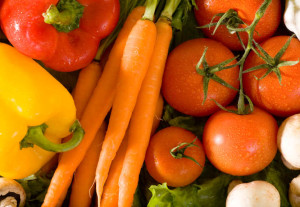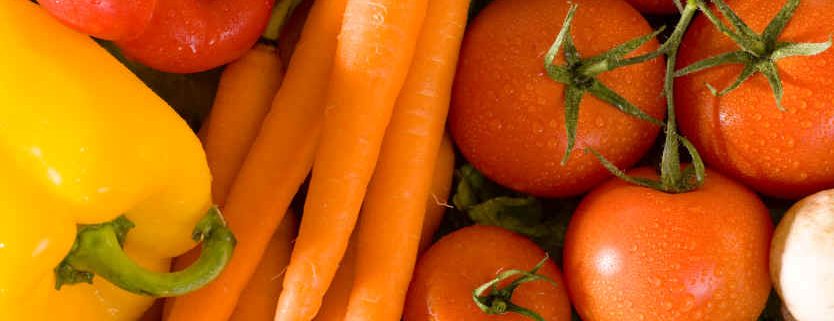It’s National Eat Your Vegetables Day!
 Vegetables are a vital part of your daily intake that provides several health benefits. Remember the old adage, “you are what you eat”? If you remember your vegetables, than you are one step closer to being the picture of health. Vegetables are nutrient dense, that is, they carry a greater nutrient contribution than calorie contribution. Today is National Eat Your Vegetables day and this is only one of the many reasons why you should celebrate it!
Vegetables are a vital part of your daily intake that provides several health benefits. Remember the old adage, “you are what you eat”? If you remember your vegetables, than you are one step closer to being the picture of health. Vegetables are nutrient dense, that is, they carry a greater nutrient contribution than calorie contribution. Today is National Eat Your Vegetables day and this is only one of the many reasons why you should celebrate it!
Vegetables are a good source of complex carbohydrates, fiber, vitamins, and minerals. They also contain antioxidants and phytochemicals, which carry many health benefits. Complex carbohydrates take longer to digest, thereby, preventing the blood sugar from rising rapidly. Diets rich in fiber may reduce the risk of cardiovascular disease, obesity, and type 2 diabetes.
Generally, vitamins and minerals are important for growth, development, and maintenance of health, while keeping bodily functions running smoothly.
Some vitamins found in vegetables are vitamin A, vitamin C, and folate.
Vitamin A helps maintain eye and skin health, as well as protect against infections. Sources of vitamin A include carrots, collard greens and pumpkins.
Vitamin C aids in wound healing, and keeps gums and teeth healthy. It can be found in red and green peppers, and brussels sprouts.
Folate is found in asparagus, peas, and dark leafy vegetables, such as spinach. Adequate amounts of folate can help form red blood cells, and prevent neural tube defects in unborn babies.
Some minerals found in vegetables are potassium, calcium, and iron.
Potassium rich diets may lower blood pressure, reduce the risk of developing kidney stones, and decrease bone loss. Vegetable sources of potassium include sweet potatoes, white potatoes, spinach, and lentils.
Calcium keeps bones healthy and strong. Calcium is found in broccoli, celery, and spinach.
Iron will keep your heart healthy, your blood flowing smoothly, and prevent anemia. It can be found in soy beans, white beans, lentils, and spinach.
Antioxidants and phytochemicals reduce cardiovascular disease, reduce the risk of certain cancers, and help prevent macular degeneration. Mostly all vegetables contain antioxidants or phytochemicals. Some examples include artichokes, winter squash, and kale.
MyPlate recommends making half your plate at each meal fruits and vegetables. Here are some tips for incorporating vegetables into your meals:
- Plan meals around a vegetable main dish such as vegetable stir fry
- Make salad your main dish for lunch
- Include cut up, shredded or chopped vegetables into casseroles, sauces, or soups
- Include a green salad with your dinner every night
Variety is the key to getting an array of nutrients, as different types of vegetables are rich in different nutrients and phytochemicals. As long as you’re eating all your colors (white included!) on a daily basis you will be victorious with your veggies and happy with your health!
Your turn to take action: How many different vegetables will you try to include in your meals today?


Trackbacks & Pingbacks
[…] Read more… […]
Leave a Reply
Want to join the discussion?Feel free to contribute!